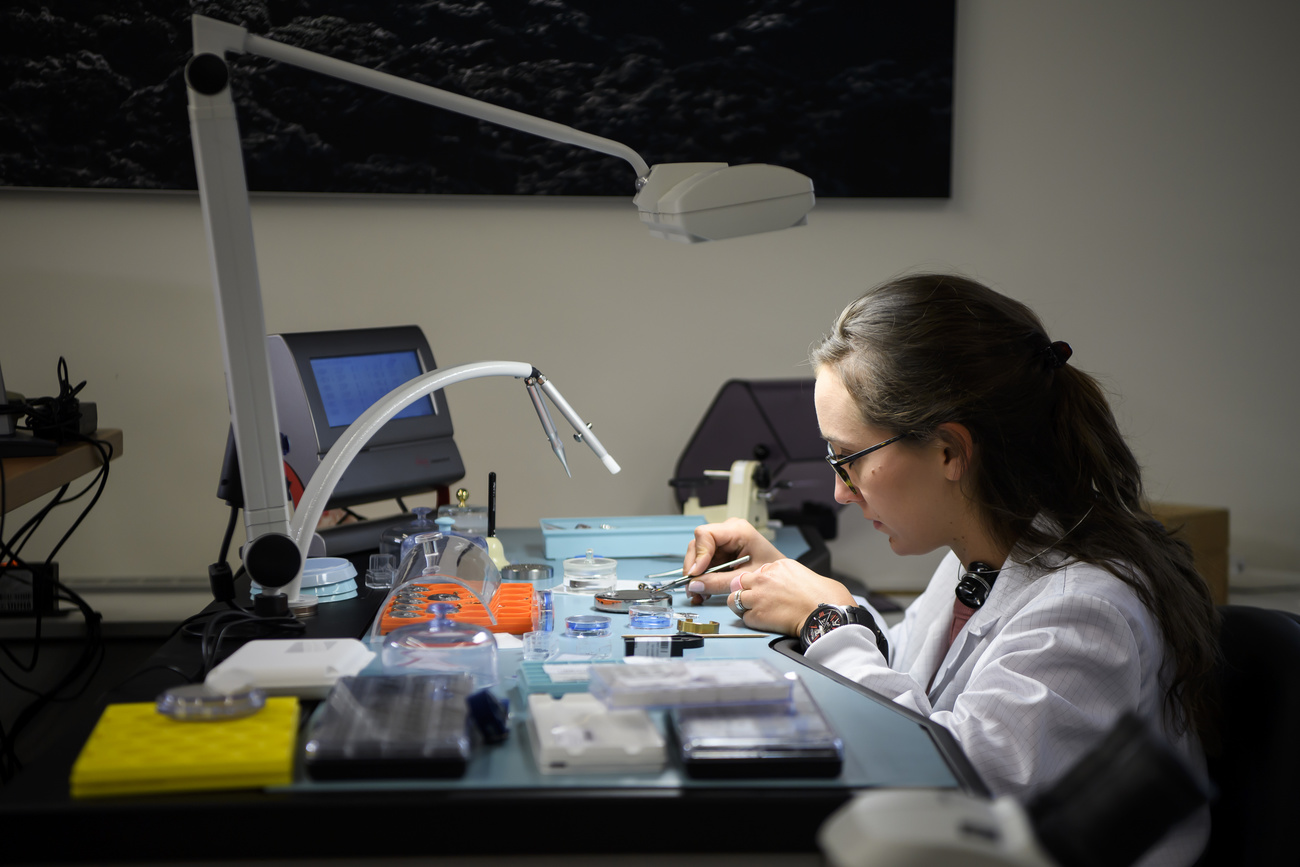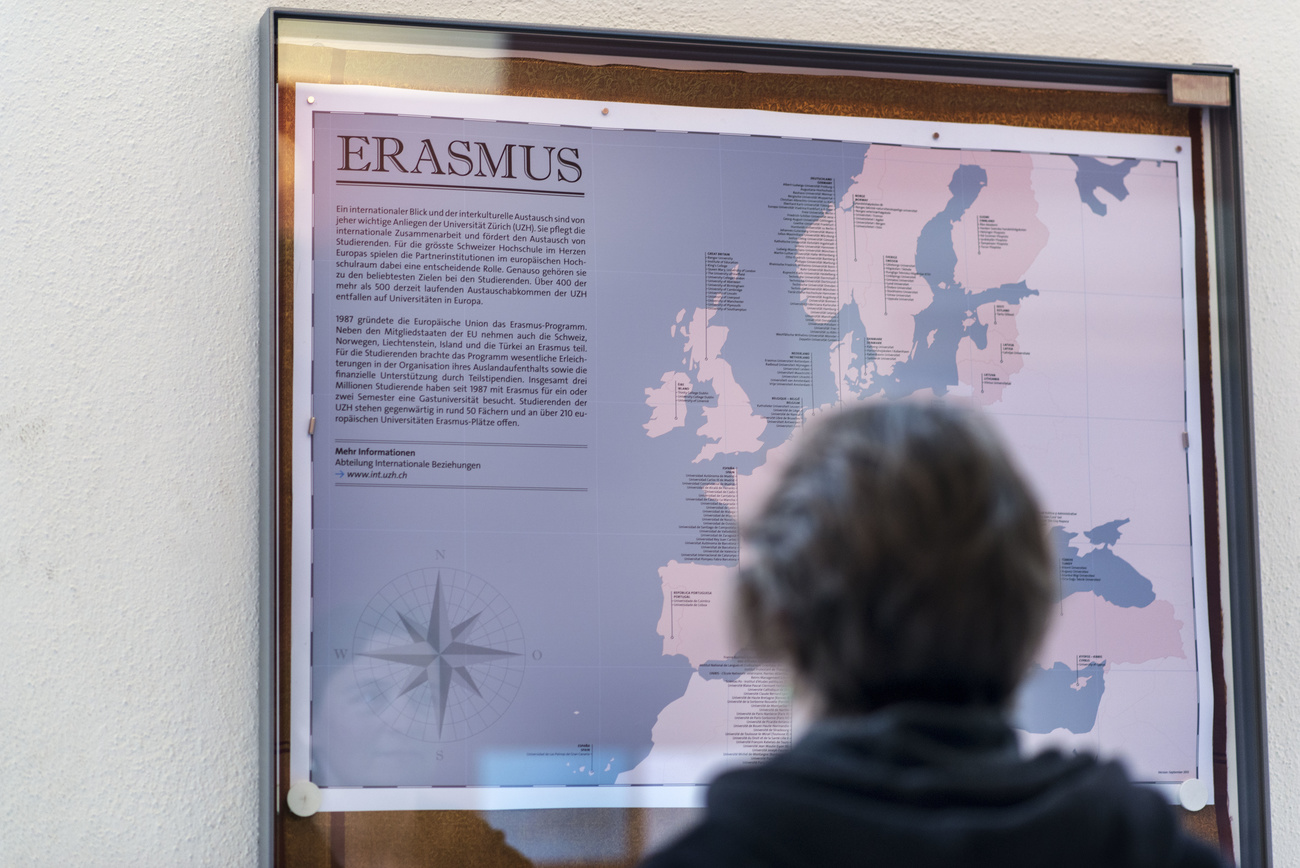
Switzerland Today
Dear Swiss Abroad,
Who watches the watchmakers? We do! Last year was a boom year for the Swiss watch industry, in part thanks to flush Americans emerging from the pandemic and deciding to treat themselves to a Swiss-made status symbol. Here are some other news and views from Switzerland on Wednesday.

In the news: A Swiss parliamentary committee has proposed waiving a controversial re-export ban that prevents ammunition it manufactures from being re-exported from another country to Ukraine.
- “The majority of the committee deems that Switzerland should make a contribution to European security, which includes providing more aid to Ukraine,” the House of Representative’s Security Policy Committee said. Switzerland has previously rejected appeals from Germany and Spain to allow it to re-export Swiss-made ammunition to Ukraine, saying such a move would violate its neutrality.
- Chinese travel agencies will soon offer Chinese tourists 20 destinations around the world. Switzerland is one of only two European countries on the list. Earlier this year Beijing criticised the European Union’s recommendations that people should be tested for Covid in China before flying to a European destination. This measure is applied by all of Switzerland’s neighbours but is deemed unnecessary by Bern.
- Despite the volatile situation on financial markets and the war in Ukraine, the number of mergers and acquisitions hit a record high in Switzerland last year. Some 647 deals with Swiss participation were recorded, up from 604 in 2021, consultants KPMG said today. However, the total value of the deals dropped by 18.5% to $138.5 billion (CHF127.6 billion).

How great is the demand for Swiss watches where you live? Last year Swiss watch exports surpassed CHF24 billion ($26 billion) for the first time, in part thanks to sales to the United States.
Despite the return of inflation, falling stock markets, the collapse of cryptocurrencies and a gloomy outlook for economic growth, watch exports reached a record level in 2022, according to the Federation of the Swiss Watch Industry. Their export value increased by almost 11.4% on 2021, reaching CHF24.8 billion.
This growth occurred despite declines in China and Hong Kong, the second- and third-largest markets for sales of “Swiss made” watches respectively. On the other hand, watch exports rose steadily in 28 of the top 30 markets. This was particularly the case in the US (26.3%), which, like the previous year, occupies top place in this ranking. “Many American consumers have emerged from the Covid crisis with more savings than usual. They have been one of the main drivers of growth, whether by purchasing Swiss watches in their own country or by travelling abroad, particularly in Europe,” says watch expert Jean-Philippe Bertschy.
Top-end timepieces took the lion’s share of the world watch market in 2022: watches with a final selling price of more than CHF7,500 accounted for more than three-quarters of the total value of exports.

Did you study abroad as a student? Since 2014 Switzerland has been excluded from Erasmus, the EU’s vast higher education network. It’s time for the EU programme to open its doors wider to Swiss participation, argues Olivier Tschopp, director of Movetia, the Swiss national agency for exchange and mobility.
“Switzerland is located in the middle of the European continent and is surrounded by EU member states. We live and pursue the same values and goals, and struggle with the same challenges, also in the field of education. Challenges such as the lack of qualified teachers and topics such as the provision of soft skills are relevant for all of Europe, including Switzerland, and should be addressed together,” Tschopp says. “The benefits of exchange and mobility, by immersing people in other countries and cultures, go far beyond education.”
Both sides have much to gain, he says. “The EU, for example, has years of experience and functioning vessels and mechanisms in the area of exchange and mobility. At the same time, Switzerland can contribute its expertise in various topics, such as vocational training and multilingualism. Switzerland and the EU are both interested in closer cooperation of labour markets. If companies work together in education and training, this strengthens mutual trust and strengthens cooperation more broadly.”
Switzerland is not a member of the European Union, but Bern and Brussels have traditionally cooperated on research, education and innovation. After Switzerland broke off talks on long-term relations with the EU in 2021, Brussels downgraded Switzerland’s participation in Horizon Europe – the world’s largest research funding programme worth €95.5 billion (CHF95 billion) – to non-associated third country. This restricts Swiss access to certain grants and funding. It has been a big blow to the Swiss research and education community, even if the Swiss authorities have stepped in with some interim funding.
“We all know that the political impasse between Switzerland and the EU won’t be easy to solve,” Tschopp says. “But […] opening all programme actions would contribute to strengthening the European education systems and bring European societies closer together.”
More

In compliance with the JTI standards
More: SWI swissinfo.ch certified by the Journalism Trust Initiative

